Prison Tycoon
Topic: Software
 From HandWiki - Reading time: 8 min
From HandWiki - Reading time: 8 min
| Prison Tycoon | |
|---|---|
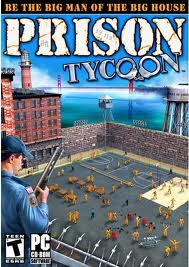 | |
| Developer(s) | Virtual Playground |
| Publisher(s) | ValuSoft |
| Engine | Gamebryo |
| Platform(s) | Windows |
| Release |
|
| Genre(s) | Business simulation game |
| Mode(s) | Single player |
Prison Tycoon is a business simulation computer game developed by Virtual Playground and published by ValuSoft in July 2005 that puts the user in charge of a prison. Objectives are to keep the prison running, keep the staff happy, keep the prisoners in line, all while trying to make money.
Users are allowed to choose between a New England prison, a modern U.S. Southwestern-style prison, and a West Coast-style prison modelled after San Quentin.
A sequel, Prison Tycoon 2: Maximum Security, was released on September 8, 2006, followed by Prison Tycoon 3: Lockdown in 2007 and Prison Tycoon 4: Supermax in 2008, then Prison Tycoon: Alcatraz in late 2010.
Also, THQ Wireless released a version of Prison Tycoon for the iPhone in May 2009.[1]
Reception
Prison Tycoon has generally received poor grades from critics. X-Play's Time Stevens gave the game only one star out of five, concluding his review by writing that "Prisons aren't supposed to be fun, so maybe it shouldn't be a surprise that a game about prisons isn't either." GameZone gave the game a score of 5/10, praising the idea and concept but complaining about clunky graphics, dysfunctional camera angles and lack of instructions.[2]
Some common complaints of the game include bad camera angles, lackluster graphics, choppy or slow framerates, annoying music and sound, and limited help for players; while most players agreed the concept was unique and interesting.[3]
Gameplay
The premise of the game is to create a functional prison complete with walls, guard towers, housing wings, dining, workout and medical facilities. The objective of the game is ultimately to turn your low security incarceration facility into a profitable maximum security prison. Funding is collected by the player through state funding, charitable donations and inmate labor depending on a myriad factors, such as employee satisfaction and inmate happiness and rehabilitation. You have the option to start with a completely blank slate in a free-play mode or with the basic layout of an existing prison with several problems that need to be addressed in the challenge mode.[4]
The challenges range from rehabilitating a certain number of inmates, reducing the number of riots and fights within the prison or simply to reaching a certain level of security. To create a prison the player places buildings or walls along a grid system by selecting which building they would like and placing it somewhere within the boundaries of the map. There are over 100 different buildings that can be constructed. Within certain buildings the player can build different rooms from over 100 to choose from, such as rooms with multiple beds within one cell or solitary confinement cells.[5] Buildings come with their appropriate staffing, for example guard towers come with guards already positioned in the tower and medical facilities come with medical staffing.
Once a player has constructed sufficient housing and basic amenities, prisoners begin arriving on buses depending on the capacity of the prison. Prisoners continue to arrive as long as there is sufficient capacity to hold them and depart as they complete their sentences. As the number of inmates increases the prison upgrades to a higher security level, beginning at low security until it becomes a maximum security prison. With higher levels of security the player has access to more advanced facilities and upgraded walls and guard towers.
Players are able to click on both inmates and staff to get a basic description of their levels of satisfaction, fatigue, productivity, as well as misconduct for prisoners. Players are also able to assign prisoners to cells, jobs and activities by clicking on one of these things with the prisoner selected. Also, players can drag and drop guards to areas of high misconduct or to break up riots which occur within the prison if prisoners become too dissatisfied.
Inmates
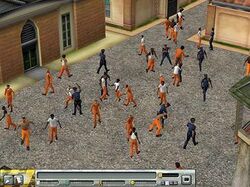
The game designers created 96 different looking inmates capable of over 100 different animations to allow for a varied prison population. Inmates have various meters above their heads which the player can monitor by clicking on the prisoners. They have levels of satisfaction, fatigue, productivity and misconduct. If inmates do not have activities, such as working out, playing basketball or performing work they will become dissatisfied and their misconduct meter will increase. Having high misconduct will result in decreased productivity and an increase in fights and riots breaking out within the prison.
Ultimately, it is important to monitor inmate morale and keep it high to increase profits, as high inmate morale and sufficient rooming will result in more inmates arriving. Also, the player has the ability to suggest inmates to the parole board, for possible early dismissal. The approval or rejection of a prisoner is based upon the number of fights he has been in, the number of gangs he is affiliated with, the number of rehabilitation projects he has completed as well as his misconduct rating.
Sequels
Maximum Security
| Prison Tycoon 2: Maximum Security | |
|---|---|
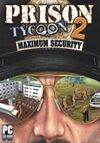 | |
| Developer(s) | Virtual Playground |
| Publisher(s) | ValuSoft |
| Platform(s) | Windows |
| Release |
|
| Genre(s) | Business simulation game |
| Mode(s) | Single player |
Prison Tycoon 2: Maximum Security is a business simulation computer game developed by Virtual Playground and published by Valusoft in 2006 as a sequel to Prison Tycoon. There are three real game locations in Prison Tycoon 2, Angola (Louisiana State Penitentiary), Leavenworth, KS, and Steilacoom, WA (McNeil Island).
Prison Tycoon 2: Maximum Security scored 5.8/10 from user reviewers at GameSpot. The game was not reviewed by GameSpot itself.
Lockdown
| Prison Tycoon 3: Lockdown | |
|---|---|
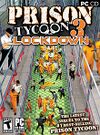 | |
| Developer(s) | Virtual Playground |
| Publisher(s) | ValuSoft |
| Platform(s) | Windows |
| Release |
|
| Genre(s) | Business simulation game |
| Mode(s) | Single-player |
Prison Tycoon 3: Lockdown is a business simulation computer game for Windows. It was released in 2007 as the third game in the Prison Tycoon series.
Prison Tycoon 3: Lockdown was reviewed by PC Gamer UK, who rated the game 3.8/10. The game stands with a 5.5 player rating on GameSpot.
Supermax
| Prison Tycoon 4: Supermax | |
|---|---|
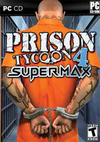 | |
| Developer(s) | Virtual Playground |
| Publisher(s) | ValuSoft |
| Platform(s) | Windows |
| Release |
|
| Genre(s) | Business simulation game |
| Mode(s) | Single-player |
Prison Tycoon 4: Supermax is a business simulation computer game for Windows. It was released in 2008 as the fourth game in the Prison Tycoon series. This version of Prison Tycoon introduced several improvements, including a brand new graphics engine, advisers, more control over aspects of the game, such as the closing/opening of gates, tunnels, and more.
Prison Tycoon 4: Supermax has not been reviewed by many professional critics. IGN's Jimmy Thang gave the game a rating of 2.5/10 and called it "terrible".[6]
Alcatraz
| Prison Tycoon: Alcatraz | |
|---|---|
| Developer(s) | Virtual Playground |
| Publisher(s) | ValuSoft |
| Platform(s) | Windows |
| Release |
|
| Genre(s) | Business simulation game |
| Mode(s) | Single player |
Prison Tycoon: Alcatraz is a business simulation computer game for Windows. It was released in 2010 as the fifth game in the Prison Tycoon series. As with previous installments, the game puts the user in charge of a prison, in this case, Alcatraz Island. Objectives are to keep the prison running, keep the staff happy, keep the prisoners in line, all while trying to make money.
Prison Tycoon: Alcatraz, similar to its predecessor, was not reviewed by professional critics.[7]
See also
References
- ↑ "Prison Tycoon" (in en). https://www.metacritic.com/game/prison-tycoon/critic-reviews/?platform=ios-iphoneipad.
- ↑ jkdmedia (2012-05-04). "Prison Tycoon - PC - Review" (in en-US). https://www.gamezone.com/reviews/prison_tycoon_pc_review/.
- ↑ "Prison Tycoon" (in en). https://www.gamespot.com/prison-tycoon/.
- ↑ "PRISON TYCOON Homepage". 2010-03-30. http://www.prisontycoon.com/pages/features.htm.
- ↑ "PRISON TYCOON Homepage". 2010-03-30. http://www.prisontycoon.com/pages/features.htm.
- ↑ Thang, Jimmy (2008-09-18). "Prison Tycoon 4: SuperMax Review" (in en-US). https://www.ign.com/articles/2008/09/18/prison-tycoon-4-supermax-review.
- ↑ "Prison Tycoon: Alcatraz" (in en). https://www.metacritic.com/game/prison-tycoon-alcatraz/critic-reviews/?platform=pc.
External links
- MobyGames is a commercial database website that catalogs information on video games and the people and companies behind them via crowdsourcing. This includes over 300,000 games for hundreds of platforms.[1] Founded in 1999, ownership of the site has changed hands several times. It has been owned by Atari SA since 2022.
Features
Edits and submissions to the site (including screenshots, box art, developer information, game summaries, and more) go through a verification process of fact-checking by volunteer "approvers".[2] This lengthy approval process after submission can range from minutes to days or months.[3] The most commonly used sources are the video game's website, packaging, and credit screens. There is a published standard for game information and copy-editing.[4] A ranking system allows users to earn points for contributing accurate information.[5]
Registered users can rate and review games. Users can create private or public "have" and "want" lists, which can generate a list of games available for trade with other registered users. The site contains an integrated forum. Each listed game can have its own sub-forum.
History

MobyGames was founded on March 1, 1999, by Jim Leonard and Brian Hirt, and joined by David Berk 18 months later, the three of which had been friends since high school.[6][7] Leonard had the idea of sharing information about computer games with a larger audience. The database began with information about games for IBM PC compatibles, relying on the founders' personal collections. Eventually, the site was opened up to allow general users to contribute information.[5] In a 2003 interview, Berk emphasized MobyGames' dedication to taking video games more seriously than broader society and to preserving games for their important cultural influence.[5]
In mid-2010, MobyGames was purchased by GameFly for an undisclosed amount.[8] This was announced to the community post factum , and the site's interface was given an unpopular redesign.[7] A few major contributors left, refusing to do volunteer work for a commercial website.{{Citation needed|date=June 2025} On December 18, 2013, MobyGames was acquired by Jeremiah Freyholtz, owner of Blue Flame Labs (a San Francisco-based game and web development company) and VGBoxArt (a site for fan-made video game box art).[9] Blue Flame Labs reverted MobyGames' interface to its pre-overhaul look and feel,[10] and for the next eight years, the site was run by Freyholtz and Independent Games Festival organizer Simon Carless.[7]
On November 24, 2021, Atari SA announced a potential deal with Blue Flame Labs to purchase MobyGames for $1.5 million.[11] The purchase was completed on 8 March 2022, with Freyholtz remaining as general manager.[12][13][14] Over the next year, the financial boost given by Atari led to a rework of the site being built from scratch with a new backend codebase, as well as updates improving the mobile and desktop user interface.[1] This was accomplished by investing in full-time development of the site instead of its previously part-time development.[15]
In 2024, MobyGames began offering a paid "Pro" membership option for the site to generate additional revenue.[16] Previously, the site had generated income exclusively through banner ads and (from March 2014 onward) a small number of patrons via the Patreon website.[17]
See also
- IGDB – game database used by Twitch for its search and discovery functions
References
- ↑ 1.0 1.1 Sheehan, Gavin (2023-02-22). "Atari Relaunches The Fully Rebuilt & Optimized MobyGames Website". https://bleedingcool.com/games/atari-relaunches-the-fully-rebuilt-optimized-mobygames-website/.
- ↑ Litchfield, Ted (2021-11-26). "Zombie company Atari to devour MobyGames". https://www.pcgamer.com/zombie-company-atari-to-devour-mobygames/.
- ↑ "MobyGames FAQ: Emails Answered § When will my submission be approved?". Blue Flame Labs. 30 March 2014. http://www.mobygames.com/info/faq7#g1.
- ↑ "The MobyGames Standards and Practices". Blue Flame Labs. 6 January 2016. http://www.mobygames.com/info/standards.
- ↑ 5.0 5.1 5.2 Miller, Stanley A. (2003-04-22). "People's choice awards honor favorite Web sites". Milwaukee Journal Sentinel.
- ↑ "20 Years of MobyGames" (in en). 2019-02-28. https://trixter.oldskool.org/2019/02/28/20-years-of-mobygames/.
- ↑ 7.0 7.1 7.2 Plunkett, Luke (2022-03-10). "Atari Buys MobyGames For $1.5 Million". https://kotaku.com/mobygames-retro-credits-database-imdb-atari-freyholtz-b-1848638521.
- ↑ "Report: MobyGames Acquired By GameFly Media". Gamasutra. 2011-02-07. https://www.gamedeveloper.com/game-platforms/report-mobygames-acquired-by-gamefly-media.
- ↑ Corriea, Alexa Ray (December 31, 2013). "MobyGames purchased from GameFly, improvements planned". http://www.polygon.com/2013/12/31/5261414/mobygames-purchased-from-gamefly-improvements-planned.
- ↑ Wawro, Alex (31 December 2013). "Game dev database MobyGames getting some TLC under new owner". Gamasutra. https://www.gamedeveloper.com/business/game-dev-database-mobygames-getting-some-tlc-under-new-owner.
- ↑ "Atari invests in Anstream, may buy MobyGames". November 24, 2021. https://www.gamesindustry.biz/articles/2021-11-24-atari-invests-in-anstream-may-buy-mobygames.
- ↑ Rousseau, Jeffrey (2022-03-09). "Atari purchases Moby Games". https://www.gamesindustry.biz/atari-purchases-moby-games.
- ↑ "Atari Completes MobyGames Acquisition, Details Plans for the Site's Continued Support". March 8, 2022. https://www.atari.com/atari-completes-mobygames-acquisition-details-plans-for-the-sites-continued-support/.
- ↑ "Atari has acquired game database MobyGames for $1.5 million" (in en-GB). 2022-03-09. https://www.videogameschronicle.com/news/atari-has-acquired-game-database-mobygames-for-1-5-million/.
- ↑ Stanton, Rich (2022-03-10). "Atari buys videogame database MobyGames for $1.5 million". https://www.pcgamer.com/atari-buys-videogame-database-mobygames-for-dollar15-million/.
- ↑ Harris, John (2024-03-09). "MobyGames Offering “Pro” Membership". https://setsideb.com/mobygames-offering-pro-membership/.
- ↑ "MobyGames on Patreon". http://www.patreon.com/mobygames.
Wikidata has the property:
|
External links
- No URL found. Please specify a URL here or add one to Wikidata.
 |
 |
 KSF
KSF